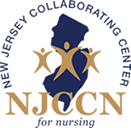Emotional. Physical. Spiritual.

Emotional
You are not alone, it’s okay to not be okay!
There is no stigma to reaching out for help, NJ-NEW offers several options to help in caring for your social and emotional well-being.
Check out some of the resources we have provided below, focused on mental health for nurses.
Working Conditions and Wellbeing among Prison Nurses during the COVID-19 Pandemic in Comparison to Community Nurses
The study compares the work conditions and well-being of prison nurses to community nurses in California during the COVID-19 pandemic, revealing that prison nurses faced longer work hours, higher pandemic-related work demands, and less sleep, while community nurses experienced higher pandemic-related fear and perceived a lower PPE supply, with both groups reporting increased stress and post-traumatic stress symptoms, underscoring the need for targeted support in these settings.
Adapting the Stress First Aid Model for Frontline Healthcare Workers during COVID-19
The article investigates the Stress First Aid (SFA) peer support model's effectiveness in reducing stress and promoting resilience among nurses and nursing staff at a psychiatric hospital in New York City during the COVID-19 pandemic, highlighting the significant psychological impact on healthcare workers and the need for effective wellbeing programs.
Stress and burnout in health care workers during COVID-19 pandemic: validation of a questionnaire
This study aims to validate a questionnaire to assess stress and burnout in healthcare workers during COVID-19 pandemic.
Nurses ́ stressors and psychological distress during the COVID-19 pandemic: The mediating role of coping and resilience
This study analyses the cross-sectional effect of sources of stress during the peak of COVID-19 pandemic on nurses ́ psychological distress, focusing on the me- diating role of coping strategies, both problem focused and emotion focused and resilience.
The Changing Role of the School Nurse During COVID-19
The COVID-19 pandemic has significantly expanded the responsibilities of school nurses, requiring them to take on roles beyond traditional healthcare, including infection control, mental health support, and navigating the complexities of online and in-person education safety protocols.
A Large-Scale Survey on Trauma, Burnout, and Posttraumatic Growth among Nurses during the COVID-19 Pandemic
This article reports on a survey of over 12,000 nurses, finding high levels of trauma, burnout, and posttraumatic growth during the COVID-19 pandemic, particularly among women and those working in critical care or COVID-19 designated settings, highlighting the urgent need for strategies to support nurses' mental health and resilience.
Burnout and well-being of healthcare workers in the post-pandemic period of COVID-19: a perspective from the job demands-resources model
This study sheds light on preventing burnout and enhancing the psychological well-being of healthcare workers under epidemic prevention and control measures by reducing epidemic-related job stressors and strength-ening personal and organizational support systems.
Burnout among healthcare providers during COVID-19: Challenges and evidence-based interventions
This article explores the significant challenge of burnout among healthcare providers during the Covid-19 pandemic, attributing it to heavy workloads, psychosocial stress, sleep deprivation, and inadequate support, further exacerbated by moral distress and structural inequalities. It emphasizes the urgent global requirement for a holistic, evidence-based response to prevent burnout, suggesting measures such as increasing awareness, promoting self-care, ensuring access to mental health services, leveraging digital technology for stress management, and refining organizational policies.
Projecting the Future Registered Nurse Workforce After the COVID-19 Pandemic
This article describes recent trends in RN employment through 2023 and forecast the growth of the RN workforce through 2035.
Nurses’ pandemic lives: A mixed-methods study of experiences during COVID-19
This study documents the experiences of 110 nurses during the COVID-19 pandemic, revealing their initial reactions, stressors like the fear of infecting family and inconsistent protocols, effective stress-reduction measures such as financial incentives and mental health support, and coping strategies, with a strong sense of duty motivating future care despite risks, highlighting the importance of psychological support and adequate protection to mitigate burnout.
Nurses’ burnout and associated risk factors during the COVID-19 pandemic: A systematic review and meta-analysis
This article examines the nurses' burnout and associated risk factors during the COVID-19 pandemic.
Burnout Citations
These articles focus on the burnout experienced by healthcare workers, mainly nurses, during the COVID-19 pandemic, emphasizing the urgent need for strategies to support their well-being and address the heightened pressures and stress contributing to burnout.
Lessons from the domestic Ebola response: Improving health care system resilience to high consequence infectious diseases
The study distills lessons from the domestic response to the 2014-2016 West Africa Ebola epidemic into a checklist aimed at enhancing future health sector responses to infectious disease outbreaks. Through interviews and focus groups with professionals involved in the Ebola response across four U.S. cities, key issues were identified around health care facility readiness, workforce challenges, and patient management. These insights were used to create an actionable checklist to improve resilience and preparedness for future infectious disease events.
Management of nurse shortage and its impact on pathogen dissemination in the intensive care unit
The article introduces an agent-based model to evaluate how different management strategies affect infection risks in ICUs during nurse shortages. It compares the effects of increasing nurse workloads, hiring substitutes, and transferring patients, against varying levels of pathogen transmissibility and nurse shortage severity. Results show that increased workloads worsen infection spread, patient transfers can lower it, and the effectiveness of substitute nurses depends on their skills. This model suggests strategic decision-making can significantly impact infection control in ICUs under nurse shortages.
Care of the Critically Ill and Injured During Pandemics and Disasters: CHEST Consensus Statement
The article outlines strategic approaches for managing intensive care surges during pandemics or disasters, focusing on pre-planning and a systems perspective involving various stakeholders. It addresses surge logistics, including equipment, staffing, and informatics, and offers 22 expert opinion suggestions for mass critical care delivery. Key points include the formation of regional coalitions, specialized physician oversight, and triage strategies to optimize resource use and extend critical care capabilities in crisis situations.
Psychological impact of healthcare workers in China during COVID-19 T pneumonia epidemic: A multi-center cross-sectional survey investigation
The study highlights significant psychological stress, anxiety, and depression among healthcare workers in China during the COVID-19 pandemic, identifying key risk factors such as gender, job title, and exposure levels. It underscores the urgent need for targeted psychological support for those on the front lines of the outbreak.
The relevance of psychosocial variables and working conditions in predicting nurses’ coping strategies during the SARS crisis: An online questionnaire survey
The purpose of this investigation was to examine the relationship between psychosocial variables and working conditions, and nurses’ coping methods and distress in response to the severe acute respiratory syndrome (SARS) crisis in Canada.
Planning for large epidemics and pandemics: challenges from a policy perspective
Less than two decades into the 21st century, the world has already witnessed numerous large epidemics or pandemics. These events have highlighted inadequacies in both national and international capacity for outbreak prevention, detection, and response. Here, we review some of the major challenges from a policy perspective.
Coping in the Post COVID Landscape
Free e-learning resources tailored to provide emotional support, build mental resilience, and well-being for nurses. This program is free to use and comes with 3.75 contact hours towards continuing education units. It was created by #FirstRespondersFirst, Osmosis and Johnson & Johnson:
Talking to your Children about COVID
These resources teach you how to speak to your children regarding the COVID crisis:
How to help your children cope with disasters:
Information and resources on how to cope with a disaster.
Have a family member or spouse that is a healthcare worker? Want to know more how you can support and advocate for them?
Click here for supportive tips on how to care for a healthcare/frontline worker in your life:
Physical
There are a few strategies you can take to promote well-being; we suggest you begin by looking to see if employee assistance programs via your employer or organization are available. Often these programs provide free resources that aid in physical and overall well-being. Other tips for beginning your physical well-being journey include:

Spiritual
Integrating spiritual wellness is essential into achieving holistic well-being. In today’s healthcare environment, the need for spiritual well-being allows nurses to navigate personal and professional difficulties both emotionally and spiritually.
As you are committed to providing exceptional care to those you care for, we are committed to supporting your well-being in all aspects. From grief to fear to hope and purpose, you will find available resources that addresses the whole spectrum of the nursing experience. Spiritual strength can be utilized during difficult times by practicing spiritual well-being as a means of managing complex emotions.

Fear
Grief
Experienced when dealing with deep sorrow, sadness, overwhelming patient illness, and death.
Hope
Purpose, Gratitude, & Meditation
and soul.

